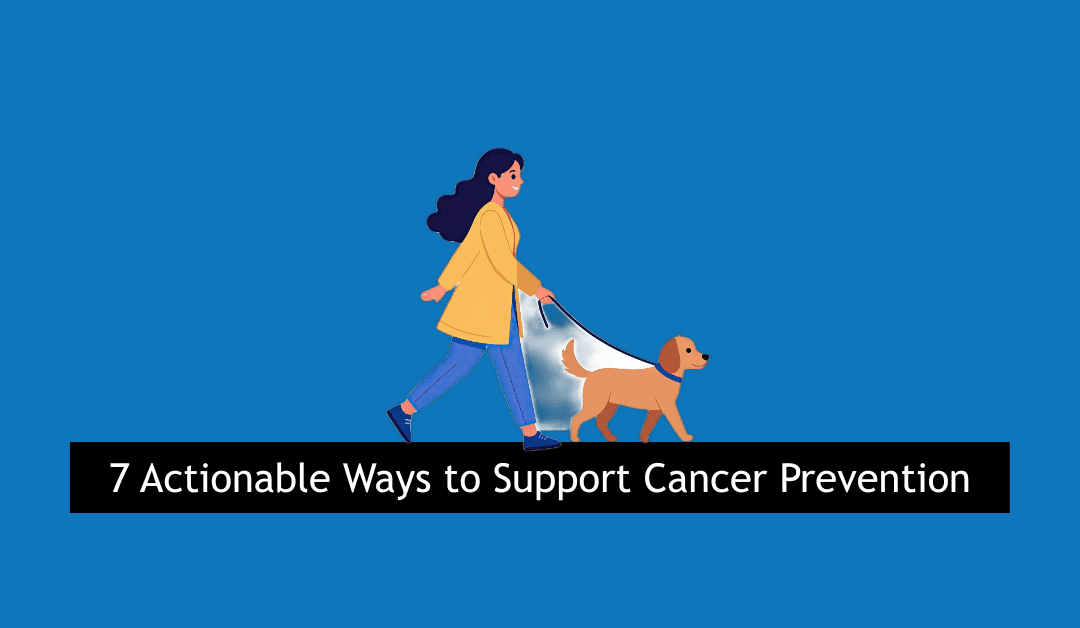
by Bag It Team | Feb 9, 2026 | Educational Articles
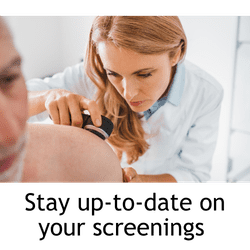 Cancer prevention can feel overwhelming — especially for individuals facing a diagnosis, caring for a loved one, or navigating survivorship. While not all cancers can be prevented, research shows that certain behaviors and informed decisions can help reduce risk and support long-term health.
Cancer prevention can feel overwhelming — especially for individuals facing a diagnosis, caring for a loved one, or navigating survivorship. While not all cancers can be prevented, research shows that certain behaviors and informed decisions can help reduce risk and support long-term health.
Prevention is not about blame or perfection. It’s about empowerment, access to accurate information, and progress over time.
At Bag It, we believe prevention, education, and support go hand in hand. By connecting people with trusted resources and practical tools, we aim to support informed decisions and healthier futures — and empower people to take small, meaningful steps.
What Does Cancer Prevention Mean?
Cancer prevention focuses on reducing risk where possible through lifestyle choices, early detection, and informed decision-making. These efforts not only support long-term health but can also help improve outcomes and quality of life.
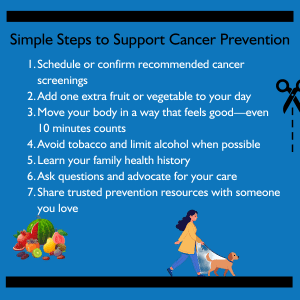 Actionable Ways to Support Cancer Prevention
Actionable Ways to Support Cancer Prevention
1. Stay Up to Date on Screenings
Regular screenings can help detect cancer earlier, when treatment may be more effective. Talk with a healthcare provider about screenings appropriate for your age, personal history, and risk factors.
2. Nourish Your Body
A balanced diet rich in fruits, vegetables, whole grains, and plant-forward foods supports overall health and may reduce cancer risk. Small changes — like adding one extra vegetable a day — can make a difference.
3. Move in Ways That Work for You
Physical activity doesn’t have to mean intense workouts. Walking, stretching, gardening, or gentle movement all count. Consistent movement supports physical and emotional well-being.
4. Avoid Tobacco & Limit Alcohol
Avoiding tobacco and limiting alcohol consumption are two of the most impactful steps individuals can take to reduce cancer risk.
5. Know Your Family History
Understanding your family’s health history can help guide conversations with healthcare providers and inform screening and prevention decisions.
6. Advocate for Yourself and Others
Ask questions, seek second opinions if needed, and encourage loved ones to stay informed. Prevention also includes access — to care, information, and support.
Prevention Is Part of the Bigger Picture
By sharing evidence-based resources and partnering with trusted organizations, we aim to meet people where they are — offering information that is practical, compassionate, and empowering across the cancer continuum.
Trusted Prevention Resources
We encourage exploring evidence-based resources from trusted organizations:
American Institute for Cancer Research (AICR)–Provides research-backed guidance on nutrition, physical activity, and lifestyle choices related to cancer prevention. AICR also contributes educational content included in Bag It bags.
American Cancer Society—Offers clear, accessible information on cancer prevention, screening guidelines, and healthy lifestyle choices.
National Cancer Institute (NCI)–NCI shares evidence-based cancer prevention and screening information for patients, caregivers, and providers.
Prevent Cancer Foundation—Focuses on prevention and early detection through education, awareness, and actionable screening resources.
And remember Bag It Cancer also consolidates information, tools and support from leading cancer organizations in our Cancer Resource Center.
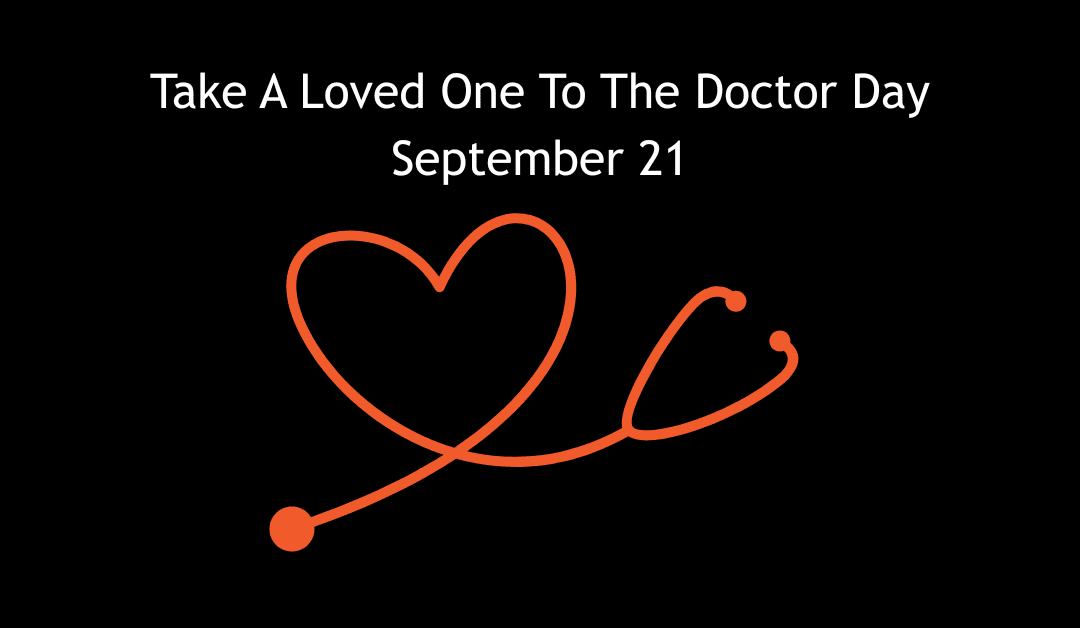
by Bag It Team | Sep 5, 2025 | Educational Articles
 September 21 marks Take a Loved One to the Doctor Day—a national reminder that good health isn’t just a personal responsibility; it’s an important way we can support each other.
September 21 marks Take a Loved One to the Doctor Day—a national reminder that good health isn’t just a personal responsibility; it’s an important way we can support each other.
Whether it’s a parent, spouse, sibling, neighbor or friend, many people put off important medical appointments for reasons ranging from busy schedules to fear of bad news. But preventive care and regular checkups are essential for catching health issues early, managing ongoing conditions, and maintaining overall well-being.
Why This Day Matters
- Early Detection Saves Lives–Many serious health conditions, like cancer, diabetes, and heart disease, have better outcomes when detected early. More about early detection.
- Breaking Down Barriers–Some loved ones may face language, transportation, or cultural barriers to accessing healthcare. Your presence can help bridge those gaps.
- Emotional Support Counts–Going to a doctor’s appointment can feel intimidating. Having someone by your side can ease anxiety and encourage open conversations with healthcare providers.
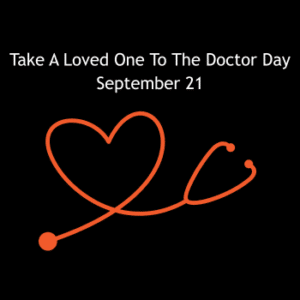 How You Can Participate
How You Can Participate
- Make an Appointment Together–Schedule a checkup for yourself and your loved one on or around September 21.
- Offer a Ride or Company–Even if you’re not the patient, being there for support can make a big difference.
- Help with Questions–Encourage your loved one to write down concerns or symptoms ahead of time so they get the answers they need.
- Celebrate the Step – After the appointment, enjoy a meal or activity together to mark the positive choice.
The Bottom Line
Good health is a gift we can help each other protect. This September 21 (or any day of the year), take the opportunity to show you care—by making sure someone you love gets the care they need. Sometimes, the best way to say “I love you” is with a ride to the doctor.
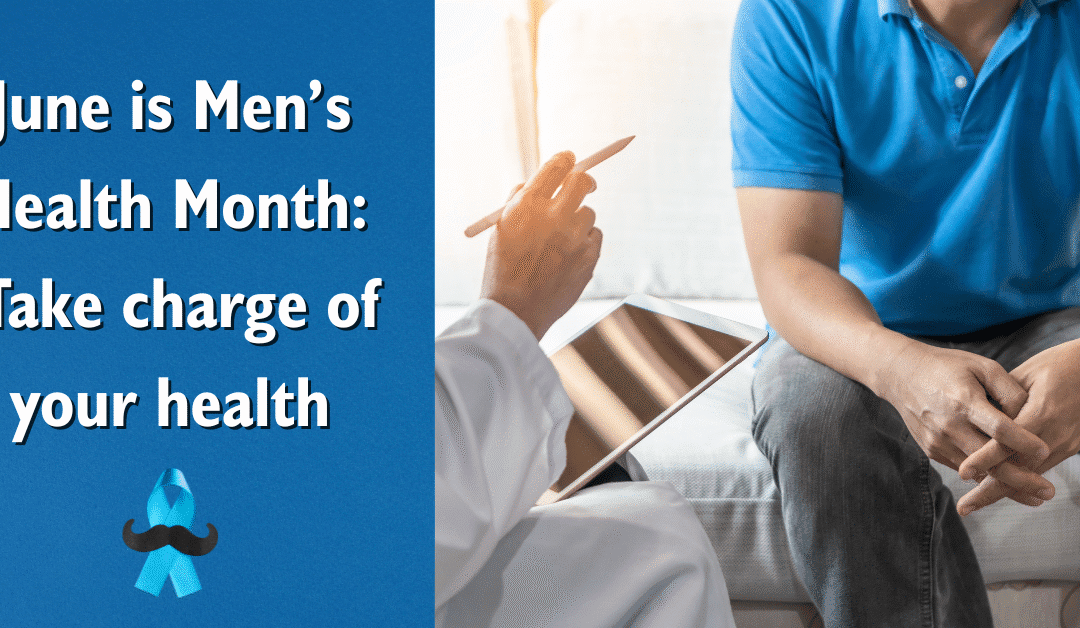
by Bag It Team | May 30, 2025 | Educational Articles
June marks Men’s Health Month, a time to raise awareness about preventable health problems and encourage early detection and treatment of disease among men and boys. At Bag It, we recognize how important it is to empower men with the tools and information they need—especially when facing a cancer diagnosis.
Cancer & Men: Know the Risks
 Men are more likely than women to be diagnosed with cancer and have a higher mortality rate. The most common cancers affecting men in the U.S. are:
Men are more likely than women to be diagnosed with cancer and have a higher mortality rate. The most common cancers affecting men in the U.S. are:
- Prostate cancer
- Lung cancer
- Colorectal cancer
- Bladder cancer
- Melanoma
Early detection is key. Men often delay routine checkups or ignore early symptoms. Regular screenings can catch issues before they become serious.
Tips for Taking Charge of Your Health
- Schedule annual checkups – Even if you feel fine, regular visits can help detect problems early.
- Know your family history – Some cancers run in families; talk with your doctor about any history of cancer.
- Get screened – Discuss appropriate cancer screenings with your provider (especially for prostate, colorectal, and skin cancer).
- Live healthy – Eat well, stay active, limit alcohol, don’t smoke, and protect your skin from the sun.
- Talk about it – Encourage the men in your life to prioritize their health, too.
How Bag It Cancer Can Help
If you or someone you know has been diagnosed with cancer, our Bag It Bag provides reliable, easy-to-understand materials to help patients feel informed, empowered, and organized. Men may not always ask for help—but they deserve support, too.
Let’s break the silence around men’s health and encourage the men in our lives to take action today.

Resources
General Men’s Health & Preventive Care
- Men’s Health Guidelines for Screening
- Men’s Health Month (Men’s Health Network) – Information, health facts, and advocacy resources dedicated to men’s health.
- CDC – Men’s Health – Covers key health risks, preventive steps, and tips for staying healthy.
Support for Men Facing Cancer
- Bag It – Get a Bag – Free resources to help patients feel informed, empowered, and organized.
- ZERO – The End of Prostate Cancer – Support, education, and advocacy specifically for those impacted by prostate cancer.
- COLONTOWN – A patient-led community for colorectal cancer
- GO2 for Lung Cancer – Education, screening & support for lung cancer
- CancerCare – Support for Men – Support groups, counseling, and educational workshops for men affected by cancer.
- Cancer Support Community – For Men – Emotional and practical support specifically geared toward men
Bag It Bags for Specific Cancers
- Prostate Cancer – Bag It and ZERO Prostate Cancer have partnered to develop 2 Bags of essential resources for patients and caregivers impacted by Advanced-Stage and Early-Stage Prostate Cancers.
- Colorectal Cancer –Bag It and Colontown have partnered to develop this Bag of essential resources for patients and caregivers impacted by colorectal cancer (CRC).
- Lung Cancer – Bag It and GO2 for Lung Cancer have partnered to develop this Bag of essential resources for patients and caregivers impacted by Lung Cancer.
Explore other Bag It Cancer-specific Bags.
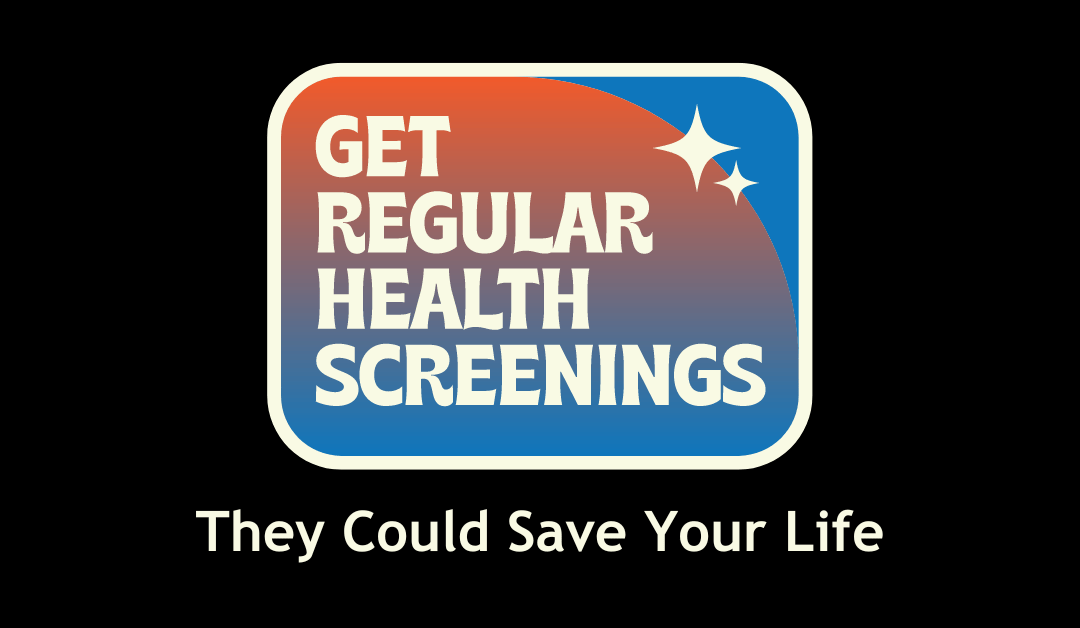
by Bag It Team | Feb 10, 2024 | Educational Articles
Many of us know that making healthy lifestyle choices and getting recommended vaccines can help lower the risk or EVEN prevent some kinds of cancer.
Cancer screenings, which are also cancer prevention strategies, check your body for cancer, even if you have no signs or symptoms. There are different kinds of screenings including:
- A physical exam and personal history
- Lab tests
- Imaging tests
- Genetic tests (these tests look for changes in the genes that may indicate that a person has or is at risk of having a particular disease or condition).
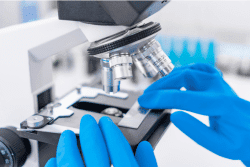
Routine screening tests can help to find breast, cervical, colorectal (colon), and other cancers early, when they may be easier to treat or cure. Many expert organizations provide guidelines for different screenings, but it’s important to talk with your doctor about your personal situation. There are benefits and risks for most screenings, and certain tests may be recommended only for people who are considered high risk for a particular cancer. Together you and your healthcare provider can decide which screenings are appropriate for you.
Remember! When your doctor recommends a screening test for you, it does not necessarily mean they believe you have cancer. Screening tests are used in people with average risk and no symptoms of cancer. Usually these tests, if abnormal, require additional testing to definitively diagnose cancer. If you have symptoms or increased risk based on your personal or family history, you may need to start screening at an earlier age than is typically recommended or may need specialized testing.
Questions to ask your doctor about cancer screenings
- Are any cancer screening tests recommended for me? Which ones?
- Can we talk about the test’s potential risks compared to its benefits?
- When should I start getting cancer screenings? And how often?
- What is the purpose of the test?
- What happens during the test?
- How long does it take to get test results?
- What happens if the results are not normal?
Screening & Prevention Resources
Centers for Disease Prevention & Control, How to Prevent Cancer or Find It Early: Screening
National Cancer Institute, Cancer Screening
Prevent Cancer Foundation, Cancer Screenings and Prevention
American Cancer Society, hundreds of articles on screening and prevention

 Cancer prevention can feel overwhelming — especially for individuals facing a diagnosis, caring for a loved one, or navigating survivorship. While not all cancers can be prevented, research shows that certain behaviors and informed decisions can help reduce risk and support long-term health.
Cancer prevention can feel overwhelming — especially for individuals facing a diagnosis, caring for a loved one, or navigating survivorship. While not all cancers can be prevented, research shows that certain behaviors and informed decisions can help reduce risk and support long-term health. Actionable Ways to Support Cancer Prevention
Actionable Ways to Support Cancer Prevention

 September 21 marks Take a Loved One to the Doctor Day—a national reminder that good health isn’t just a personal responsibility; it’s an important way we can support each other.
September 21 marks Take a Loved One to the Doctor Day—a national reminder that good health isn’t just a personal responsibility; it’s an important way we can support each other. How You Can Participate
How You Can Participate
 Men are more likely than women to be diagnosed with cancer and have a higher mortality rate. The most common cancers affecting men in the U.S. are:
Men are more likely than women to be diagnosed with cancer and have a higher mortality rate. The most common cancers affecting men in the U.S. are:
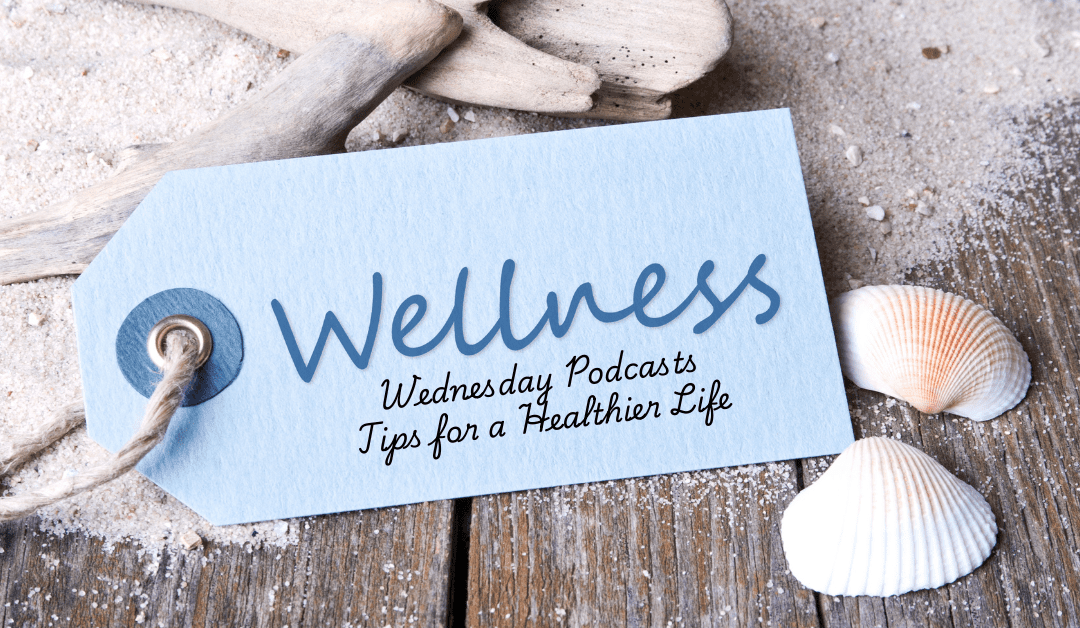
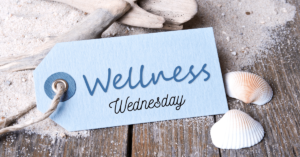 Looking for tips on healthy living and overall wellness?
Looking for tips on healthy living and overall wellness?

Recent Comments